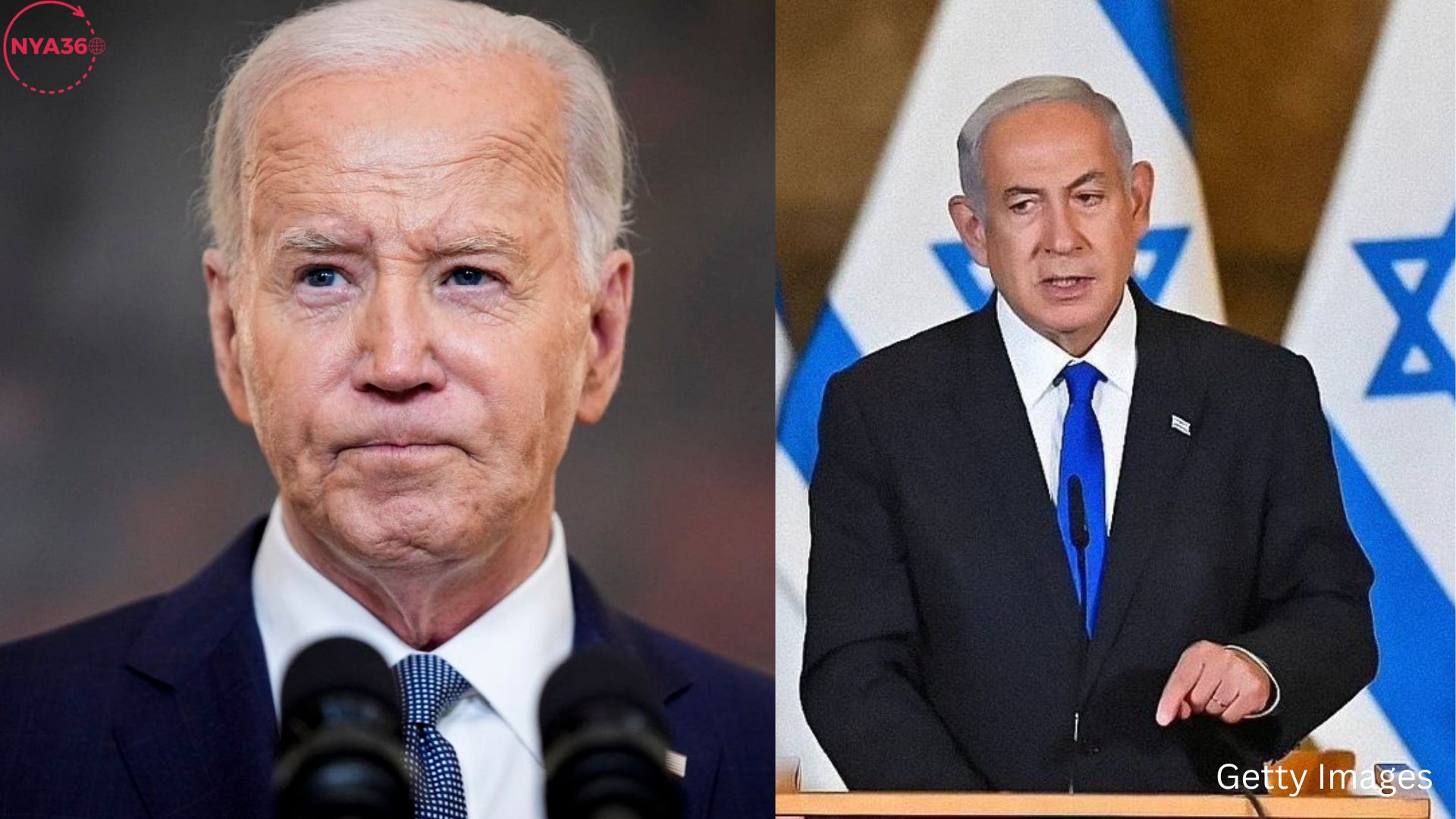The United States has issued a grave warning to Israel, indicating that it may implement a weapons embargo if the humanitarian catastrophe in Gaza is not addressed within 30 days. This prospective action arises at a pivotal moment as global scrutiny intensifies on Israel concerning its treatment of Palestinians, particularly in the context of the ongoing military operations in Gaza. Former British Foreign Minister David Cameron recently disclosed that he contemplated placing sanctions on two prominent Israeli ministers—Bezalel Smotrich and Itamar Ben-Gvir—because of their provocative statements and conduct amid the Israel-Palestine conflict.
The U.S. Ultimatum and Its Consequences
The United States, historically a staunch supporter of Israel, is adopting an unusually stringent position by issuing this warning, indicating an escalating concern throughout the international community regarding the humanitarian crisis in Gaza. The prospect of an embargo signifies a change in U.S. policy regarding Israel, highlighting the Biden administration’s growing readiness to hold Israel responsible for the plight of people in the Gaza Strip.
The violence has resulted in extensive devastation and the displacement of numerous Palestinian families, provoking international censure. Human rights organizations have consistently condemned Israel’s blockade of Gaza, asserting that it has precipitated a humanitarian crisis by restricting access to crucial products, medical supplies, and fundamental services. In this perspective, the United States admonition may be perceived as an endeavor to advocate for substantial reform and a settlement to the persistent anguish in Gaza.
The prospect of an arms embargo is substantial, given that Israel’s defense is largely dependent on U.S. military assistance and armaments. The United States has extended considerable military aid to Israel for decades, encompassing sophisticated weaponry and financial backing for its security expenditures. Disrupting this supply, even momentarily, would significantly affect Israel’s military capabilities.

The embargo is conditional upon Israel resolving the humanitarian crisis in Gaza, particularly by enhancing assistance access, facilitating the restoration of damaged infrastructure, and assuring the reduction of civilian casualties in future operations. The response of Israel to this request will be pivotal in ascertaining whether the United States would execute its threat.
David Cameron’s Statements Regarding Sanctions
In a similar event, former British Foreign Minister David Cameron has made significant assertions concerning his tenure, particularly regarding his views on imposing sanctions on Israeli ministers Bezalel Smotrich and Itamar Ben-Gvir. Cameron stated that both ministers had made concerning statements and undertaken acts that intensified the humanitarian catastrophe in Gaza and heightened tensions in the West Bank.
Smotrich, Israel’s finance minister, and Ben-Gvir, the national security minister, are regarded as hardliners in the Israeli government, recognized for their radical right-wing ideologies. Smotrich has promoted the expansion of Israeli settlements in the West Bank. In contrast, Ben-Gvir has a record of incendiary statements toward Palestinians and has supported measures perceived as antagonistic toward the Palestinian populace.
Cameron explicitly referenced remarks by Smotrich and Ben-Gvir advocating for settlers to obstruct aid convoys into Gaza and endorsing severe settlement violence in the West Bank. Cameron contended that these remarks exacerbated the worsening humanitarian conditions and hindered peace negotiations. Cameron contemplated implementing a travel restriction and asset freeze on the two ministers to exert pressure on the Israeli government to restrain its hardliners and pursue a more peaceful conclusion to the conflict.

Nevertheless, Cameron finally opted not to impose these measures, citing the impending Israeli general elections as justification for his restraint. He lamented this decision, indicating a desire for a more resolute position at that time. Cameron’s disclosures have ignited a renewed discourse over the necessity for Western countries to adopt a more proactive stance in holding Israeli authorities accountable for actions that intensify the conflict and humanitarian crisis.
A Transformation in Global Perspectives?
The alignment of these two occurrences—the U.S. warning and Cameron’s statements—illustrates a wider transformation in global perspectives toward Israel’s policies in the Palestinian territories. For years, Israel has functioned with much impunity, owing to robust backing from allies such as the United States and the United Kingdom. As the situation in Gaza deteriorates and international indignation escalates, indications suggest that even Israel’s staunchest supporters may be reassessing their stances.
The U.S. warning is notably relevant as it indicates the Biden administration’s readiness to utilize its substantial influence to advocate for alterations in Israeli policy. The potential arms embargo, albeit currently a mere threat, signifies an increasing dissatisfaction with Israel’s management of the Gaza conflict. If the embargo is implemented, it would signify a significant shift from the United States’ enduring stance of unwavering backing for Israel’s military.
Cameron’s comments contribute an additional dimension to this transition. His remarks indicate a growing exasperation among Western nations with Israel’s reluctance to confront the fundamental issues of the conflict, specifically its occupation of Palestinian areas and its treatment of Palestinian citizens. Cameron’s contemplation of sanctions against Israeli ministers indicates an acknowledgment that the conduct of specific individuals inside the Israeli government is exacerbating the crisis and requires intervention.

What follows?
As the 30-day deadline approaches, attention will be focused on Israel’s reaction to the U.S. admonition. The Israeli government has demonstrated no inclination to alter its strategy on Gaza, contending that its military operations are essential for national security and attributing the plight of civilians to Hamas, the militant organization governing Gaza. Nonetheless, the prospect of an arms embargo may compel Israel to reevaluate its strategy, especially if the United States is committed to implementation.
Cameron’s disclosures are expected to intensify demands for Western countries to assume a more proactive stance in holding Israel accountable for its conduct. Should former leaders such as Cameron advocate for sanctions, contemporary governments may experience heightened pressure to respond.
The forthcoming weeks will be pivotal in shaping the trajectory of U.S.-Israel ties and the international community’s stance on the Israel-Palestine conflict. If Israel neglects to resolve the humanitarian crisis in Gaza, it may encounter not only an arms embargo from the United States but also heightened isolation from the international community.
Final Assessment
The United States admonition to Israel and David Cameron’s comments regarding possible sanctions against Israeli officials signify a pivotal shift in the international community’s stance on the Israel-Palestine conflict. As a 30-day deadline approaches and discontent with Israel’s policies in Gaza and the West Bank rises, there exists a tangible risk that Israel may see substantial repercussions if it fails to resolve the humanitarian crisis. The ongoing situation will be influenced by the acts of Israel and its allies, determining the future of the conflict and the potential for peace in the region.
Follow us on social media: Instagram, Threads & Twitter X @nya360_ YouTube & Facebook @nya360.





